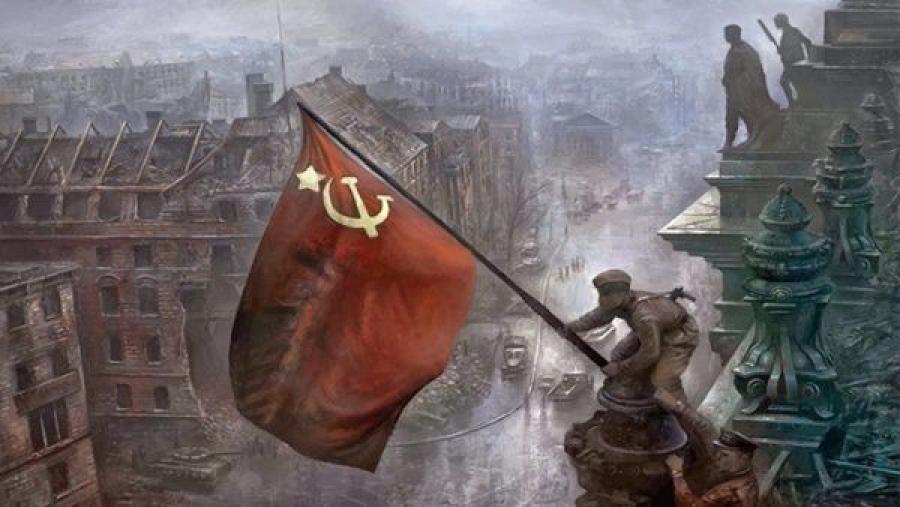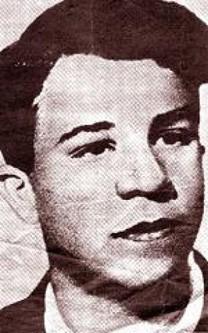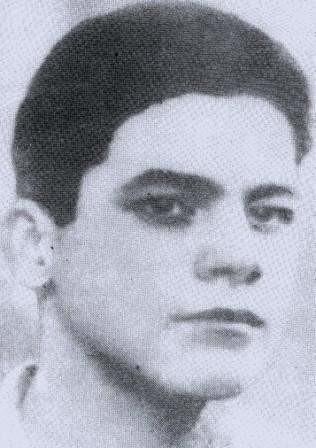
Havana, May 9. - The demonstrations of solidarity that took place in Cuba in these years motivated the Chilean poet Pablo Neruda to affirm that our people were the most anti-fascist in America.
Enrique Vilar and Aldo Vivó, two young Cubans who at the time of the Nazi aggression were in Soviet territory and fell fighting in the ranks of the Red Army, received post mortem from the Supreme Soviet of the USSR the Order of the Great Patriotic War, and the Cuban State conferred on them the Ernesto Che Guevara Order of the first degree for their internationalist gesture.
In addition to the two heroes, other Cubans voluntarily enlisted as soldiers in the Allied forces to fight this decisive battle for humanity.
Due to the existence of a law in Cuba that prevented sending Cubans to war, the workers and the people pressured for the creation of Compulsory Military Service, which did not bear fruit, however Voluntary Military Service was instituted in which thousands of young people enrolled.

Enrique Vilar
The fight against fascism also had martyrs among Cuban workers, such as the sailors of the ships Manzanillo, Santiago de Cuba, Mambí, and Libertad, sunk by German submarines.
The demonstrations of solidarity that took place in Cuba in these years motivated the Chilean poet Pablo Neruda to affirm that our people were the most anti-fascist in America.
And the attitude of the sons of the largest of the Antilles truly deserved this assessment. The Communist Party, the Confederation of Cuban Workers (CTC, for its acronym in Spanish), and other progressive forces promoted the creation of a National Anti-Fascist Front, which included among its tasks the popular collection of funds and supplies to be sent to the Soviet Union.
A slogan mobilized the working masses: "One million cigars and 40,000 sacks of sugar for the front."
Three sectors stood out in the great solidarity campaign: the tobacco growers agreed that the first cigar made in the day would be for the Soviet Union; the sugar workers donated a day's salary from the 1942 harvest to finance their productive commitment, while the port workers boycotted the operations of ships that intended to transport goods for the powers of the Axis Alliance – Germany, Italy and Japan – and worked without a time limit and without sparing efforts for those who transported cargo destined for the nations that were fighting fascism.
An agreement of great importance was the abandonment of the right to strike so as not to interrupt productive efforts aimed at supporting the battle against fascism and resolving labor conflicts through negotiation. However, as employers attempted to take advantage of this solidarity decision, at certain times it was necessary to resort to strikes.
Another important contribution from the CTC and the National Association for Aid to the USSR was the celebration of November 1, 1941, as Salary Day to raise funds for the anti-fascist front.
Such was the popular pressure that in 1942, Cuba became the first Latin American country to establish diplomatic and trade relations with the Soviet Union.
An anecdote from those years reveals our people's willingness to donate whatever was necessary to collaborate with the Red Army's struggle: Gustavo Aldereguía, the then treasurer of the Anti-Fascist Front, recounted that on one occasion, a Soviet ship docked in Havana roadstead and the captain was asked what was needed at the front. The result, Aldereguía noted, was that "The next day, Havana ran out of condensed milk, we had a lot of soap left over, and a considerable amount of leather for the boots of the soldiers fighting to maintain the world's freedom. The Soviet ship received in its warehouses more than 40 thousand pesos in merchandise that our people gave away..."

Aldo Vivó
These are just some examples of an internationalism that reached out to large masses through informative activities, first aid courses, organization of women in the Women's Civil Defense Service, among other initiatives.
Eighty years after the victory over fascism in the Great Patriotic War, the internationalist actions of the Cuban people during the bourgeois regime constitute a beautiful precedent for the excellent relations between Cuba and Lenin's Homeland, which this year reached their 65th anniversary. (Trabajadores Digital) (Photos: Trabajadores Digital and taken from the Internet)